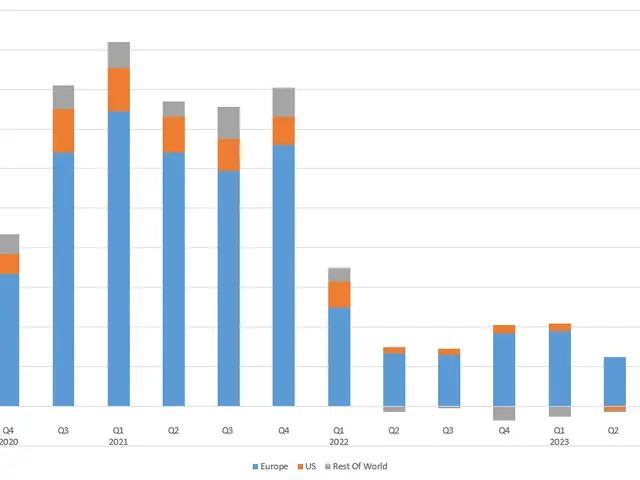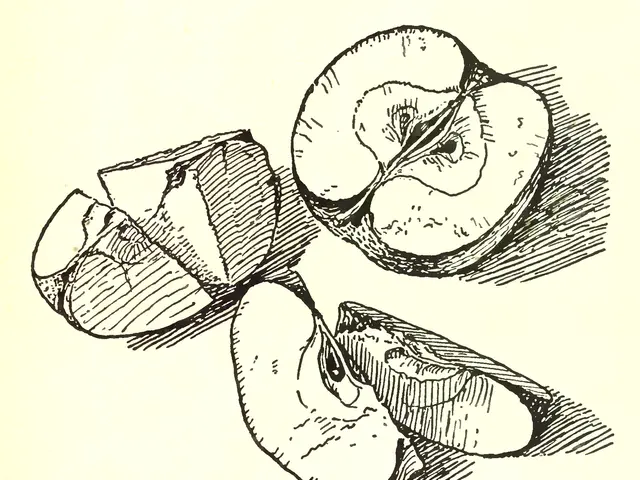Virus alert soaring: critical risk level reached in Austria
Take a Breath, Tick Season’s Back!
With spring in full bloom, the risk of tick-borne encephalitis (TBE) makes a comeback. Here's a lowdown on thealarming neurological illness and what you can do to stay protected.
TBE is a severe viral infection prevalent across Europe with symptoms like fever, headache, and, in extreme cases, death. Unlike the flu, TBE doesn't have any treatment – only the symptoms can be managed.
Cases are spread by infected ticks, found predominantly in Central and Eastern Europe, including Austria. The time between a tick bite and the onset of symptoms can range from 2 to 28 days. Thankfully, TBE can't be contracted through person-to-person contact.
In 2024, Austria recorded a staggering 49 cases, while Styria followed closely with 22. A total of 158 patients required hospital care nationwide, with 53% experiencing severe symptoms like meningitis, myelitis, or neuritis[1]. The full recovery rate for those affected remains unclear.
In the battle against TBE, arming yourself with knowledge and adopting some simple preventative measures goes a long way in safeguarding your health.
Staying Safe in the Great Outdoors
- Geared Up – Long-sleeved shirts, long pants, closed shoes, and tick repellents containing DEET can reduce your risk of exposure.
- Stay on the Path – Stick to trails to minimize contact with infected ticks lurking in tall grass.
- Check for Ticks – Regular inspections post-outdoor activities can help catch ticks before they transmit the virus.
Dietary Considerations
Avoiding unpasteurized dairy products can further lower your chances of contracting TBE[2][3].
Tackling TBE with Vaccines
Here’s where you can get vaccinated against TBE in Austria:
- Vaccine Supply – Vaccines like Encepur N and FSME-Immun provide effective protection[5].
- Vaccination Programs – City campaigns, such as Vienna’s running from April 14th to May 9th, 2025, offer TBE vaccinations[2].
Follow the recommended vaccination schedule for long-term protection:
- Primary Immunization - A series of two to three doses, usually spread over months. A booster dose is recommended 9 to 12 months after the first dose[5].
- Boosters – Every 3 to 5 years are recommended for continued protection against TBE[5].
Remember, it’s essential to consult local health authorities or a healthcare provider for specific advice tailored to your risk and travel plans. Don't let TBE be a springtime downer – stay safe and enjoy the season!
[1] Current Viral Epidemiological Information (Austria)[2] Vienna TBE Vaccination Campaign[3] Dietary Precautions for TBE[4] Tick Prevention Tips[5] TBE Vaccines
- Science shows that long-sleeved shirts, long pants, closed shoes, and DEET tick repellents can reduce your risk of TBE exposure when spending time outdoors.
- In addition to protective gear, it's recommended to stay on trails to minimize contact with infected ticks in tall grass for optimal workplace wellness and overall health and wellness.
- Medical conditions such as TBE can have severe symptoms, including meningitis, myelitis, and neuritis, and may require hospital care, so it's necessary to be vigilant when engaging in fitness and exercise activities in affected areas.
- Healthcare providers may advise avoiding unpasteurized dairy products as a dietary precaution to lower the risk of contracting TBE.
- Vaccines like Encepur N and FSME-Immun can provide effective protection against TBE, and vaccination programs are available, such as the one running in Vienna from April 14th to May 9th, 2025.
- The recommended vaccination schedule for long-term protection includes primary immunization, a series of two to three doses spread over months, and booster doses every 3 to 5 years to ensure continued protection.
- Mental health and awareness about TBE and its potential risks is essential in managing the disease, especially for men and women who spend significant time in regions where TBE is prevalent.
- Therapies and treatments for TBE focus on managing the symptoms since there's no established cure, and attention to skin care and overall self-care is crucial during recovery.
- In the context of aging, it's essential to be aware of the risks of TBE and other medical conditions like neurological disorders, particularly for parents managing weight and the health of themselves and their families, as prevention and early intervention play a significant role in maintaining overall wellness and sexual health.
CBD products may also have potential benefits in addressing various health issues, including neurological disorders, however, consult a medical professional for specific advice and guidance.







